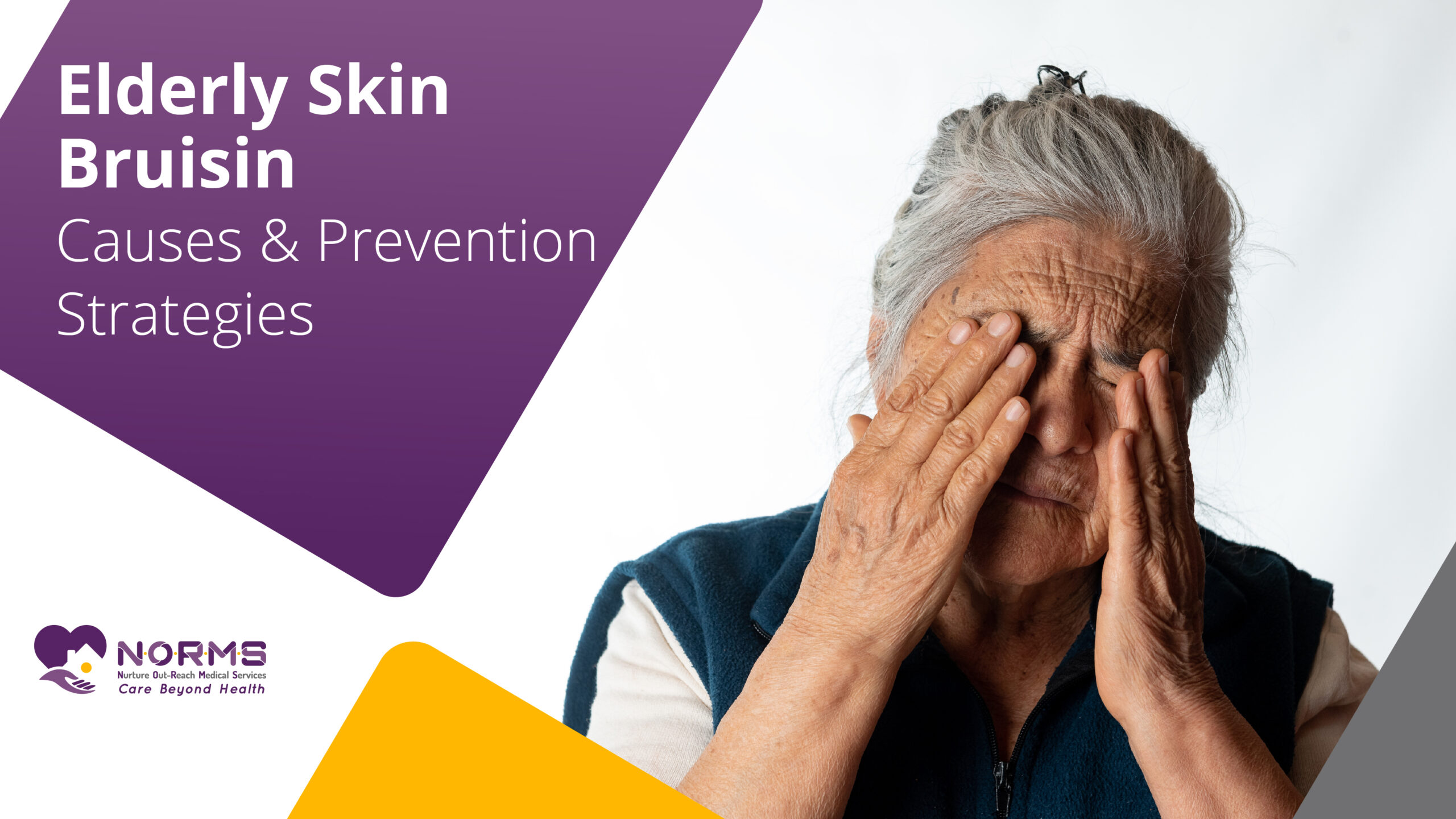
Ecchymosis ( Eh – chuh – mow – sis ) is the scientific term for bruises. These develop from blood clots beneath the skin. They result from a break in a blood vessel. Bruises resemble a black-and-blue or red-to-purple bruise on your skin. The majority of bruises heal on their own and change color. Unknown bruising could indicate the presence of a serious and underlying medical issue.G
TABLE OF CONTENTS
Almost anyone can get bruises but people above the age of 65 and women are more prone to bruises.
Certain medical diseases and blood disorders can also increase the risk of bruising, Some examples of such instances are:
Out of many factors of aging, elderly people commonly suffer from the impact of both age-related physiological and external factors. Elderly skin bruising is one of the most common occurrences in elderly people. The various reasons as to why, elderly people suffer from skin bruising are as follows :
Skin, with age, becomes thinner, therefore it can lose part of its elasticity. This skin can be easily damaged and the vessels just below the surface of the skin can be torn when broken, causing bruises.
The production of collagen which gives strength and structure to the skin is diminished as age advances. This breakdown of collagen results in the skin being less tolerant and more fragile, which causes bruising.
The vessels become more brittle and less elastic with the increase of the age of an individual. The vessel walls can also get weaker which consequently makes them more susceptible to breakage even when hit by a slight push.
The elderly often take medications for many related health problems. Blood thinners (anticoagulants) that they have to take can also alter the ability of blood to form clots. This may lead to bleeding also from common injuries.
Some of the medical conditions existing in elderly people, which have higher incidences than others even vascular or blood clotting disorders, can lead to higher chances of bruising.
The excretion of essential nutrients, vitamin K which is involved in the blood clotting mechanism can cause a vulnerability to bruising.
Sometimes, easy bruising is a sign of a dangerous underlying illness, such as a blood disorder or difficulty with blood clotting. One must Consult your physician if you
If one suffers from such cases of bruising then they must immediately consult a physician and get it treated. Especially in the case of elders, it becomes even more important to get the necessary treatment and prevent elderly skin bruising.
For elderly people, bruises are a lot more common. One could hit themselves against the wall or table and wake up to bruises the next day. To prevent bruises in elderly people one can take the following precautions.
Make quick contact with the doctor if a bruise appears out of the blue or if you feel concerned about a particular bruise. This is particularly critical if the elderly person has started taking a new prescription or if there is bleeding in the gums, nose, or any other area of the body.
Therefore, we can say that while skin bruising is extremely common in elders, if taken care of properly it won’t lead to a major issue. Proper precautions and steps must be taken to ensure that bruises don’t drastically harm elderly people.
Old age brings effects as the skin gets thinner and loses some of its elasticity. Moreover, the blood vessels also become weaker, thus leaving elderly skin even more prone to bruising from injuries inflicted during minor trauma or pressure.
Common causes are age-related skin changes, medications that influence blood clotting, health problems (such as fragile vessels or clotting disorders), accidents or bumps. Skin can be made more fragile by ultraviolet exposure that occurs over time.
The prevention methods include the protection of the skin from the excessive impact of the sun, regular use of moisturizers to retain the skin’s elasticity, use of protective clothing, and preserving caution to avoid falls. A person who practices regular exercises is usually healthier and fitter and thus less exposed to injuries resulting in bruises. Interaction with health professionals is necessary to maintain medication and for the management of any underlying health problems.